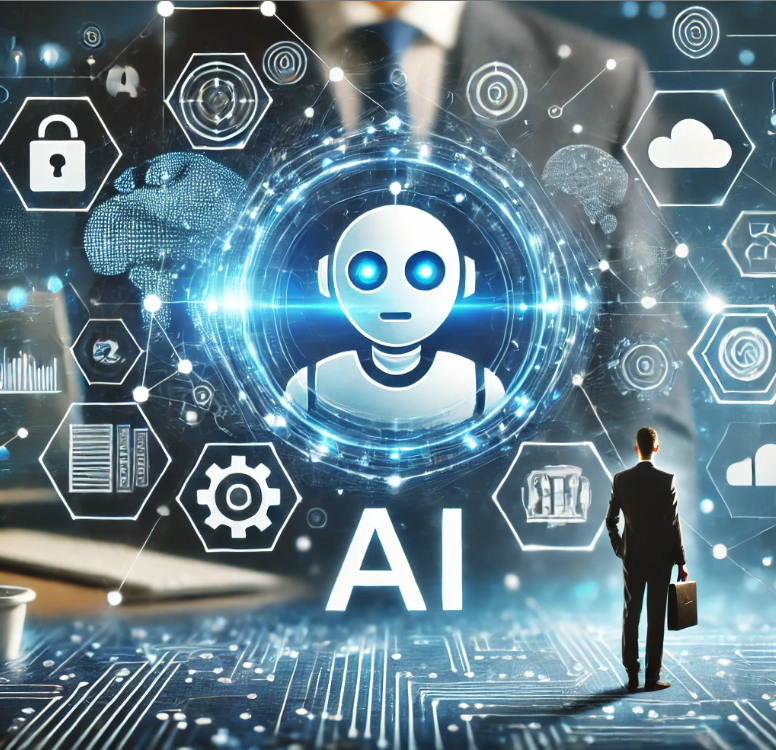Think of an idea where every text can be turned into a voice with a sound that is natural and poetic and made special for you. This is now achievable due to advanced AI voice generators like Lyrebird.
Sometime in the recent past, people could hardly believe some computer programs could simulate human voices or would at least sound like them even though they were not fully alike.
Today, AI voice generators are transforming how we interact with technology, bringing lifelike and customizable speech to various applications.
This article delves deep into AI voice generators, their uses, advantages, and the prospects for this amazing technology.
The Genesis of AI Voice Generators
Speech synthesis technology has had vigorous development since the invention of AI voice generators. The initiatory TTS systems are used to give very mechanical sounds.
However, there has been tremendous growth in deep learning and neural networks leading to contemporary TTS that sounds more or less human.
One standout pioneer in this area is Google DeepMind, which came up with an AI system called WaveNet that can produce highly realistic speech by considering the complexities of human voice patterns.
This has, in turn, opened up the doors for next-gen AI voice generators which can mimic human speech finely grained down to intonation, emotion, pacing, and INTONATION.

AI Voice Generators Application
AI voice generators are very versatile and used in many different fields. Some examples include:
1) Accessibility and Inclusivity:
AI-driven voice generators are necessary for individuals with poor vision or reading hardships who depend on spoken synthesized words rather than written ones to comprehend the contents of given web pages, e-books, or any other form of text document.
2) Content Creation and Media:
AI voice generators are now being used by content creators to enhance their work discreetly. Podcasters as well as YouTubers can produce voiceovers and narrate scripts with video casts without the need for expensive recording equipment thanks to these AI systems.
Lovo’s patented Custom Technology additionally provides for personalized listener engagement through personalized tones or styles that are always lifelike.
This system boosts interest while increasing overall comprehension levels among listeners.

Example: Audiobook Production
The audiobook industry is transforming because of artificial intelligence voice generators. Companies including Audible and Google Play Books utilize AI to rapidly and cost-effectively create audiobooks.
This enables authors to reach a more diverse audience as well as people who prefer listening rather than reading.
3) Customer Service and Virtual Assistants:
Behind modern customer services stand AI voice generators. Amazon Alexa, Google Assistant, and Apple Siri are virtual assistants that communicate with people using voices powered by AI, providing information, answering questions, and performing tasks.
Example: Personalized Customer Connections
Humanity has a soft spot for artificial intelligence voices loaded with emotional cues. AI voices endowed with emotive characteristics can display joy, sadness, fury, and other feelings, thus making interactions livelier and more relatable.
Empathy and apprehension being pivotal in functions like therapy or mental health help make it a valuable aspect.
Ethical Considerations and Challenges of AI Voice Generators
As AI voice generators become more sophisticated and pervasive in everyday activities, ethical dilemmas and obstacles come to the fore.
Therefore, there is a serious concern that comes weighing much upon them which is their potential misuse in generating fake videos or content using a concept called deep fake videos.
The power to accurately duplicate a person’s voice could result in wrong identity assertions as well as deception. In terms of usage for commercial purposes or media content that may involve voice generation through AI.
The problem of agreement arises, requiring definite rules to facilitate respectable practices. It becomes imperative to put in place measures aimed at curbing this vice.
Integrating AI Voice Generators with New Technologies
Artificial intelligence (AI) systems are joining forces with other current technologies hence broadening their scope and usage.
For example, if paired with augmented reality (AR) together with virtual reality (VR), AI voices will improve the gaming atmosphere even more or make it harder for players to distinguish this fictional world from their reality.
Telehealth benefits from using AI-voiced teleservices developed inside medical facilities interspersed with those created on an outpatient basis.
Impacts on Human Communication and Creativity
AI voice generators are revamping human communication and creativity. As a result, the voice of the system changes the language model in ways that closely match the human voice.
Due to this fact, specialists can then be consulted so that they help people find out how to access or apply several insights within their spheres.
For instance, an area where cutting-edge technologies are pushing the boundaries is in mobile app development that integrates artificial intelligence. Explore how AI is transforming mobile apps to stay ahead in the market.
Nonetheless, for many people in the world, generating good audio content will never be an option unless they put together enough finances that take care of this level of production.
Reports on the positive and negative aspects of using AI-generated voices have surfaced in the recent past. Nevertheless, users consider it worthwhile to download these applications as they offer them a more natural experience compared to virtual assistants.
There is evidence that indicates governments generate impersonated audio reports that they use to issue statements or learn the reactions of citizens on sensitive matters.
AI Voice Generators: Changing Normal Life into Incredible Experiences
They are not just pushing technological boundaries, but they have also found their way into our regular daily activities.
Starting from personalized voice interfaces in smart house gadgets to specific educational and entertaining sounds, these machines are making our daily lives easier.
Soon, when we catch up on even more advanced technological strides, we will see much more creative applications that fuse AI voice generators into various sectors.
For further insights into how AI is shaping the future check out our blog on AI in mobile apps.
The Future of AI Voice Generators
Voice synthesis, which simulates the production of human speech, is a subset of AI. Ongoing research and development seek to make these systems more advanced and human-like.
There are a few trends to keep an eye on:
Multilingualism:
The pace of globalization implies a growing need for AI voices with the ability to speak more than one language.
The creators of future AI voice generators will ensure that different languages can be used interchangeably
Hence improving understanding between people from different cultures and extending accessibility.
Hyper-Personalization:
Developments in the field of AI will lead to voice synthesis systems that are even more customized with the capacity to react to personal tasks and circumstances.
This can range from a virtual assistant who knows your best song genre to a customer care intelligent system that stores information on past videos you have watched through such personalization, it will enhance people’s satisfaction.
In Conclusion
AI voice generators are revolutionizing our communication mode, invention abilities, and participation with technology. The potential applications of this technology are numerous, ranging from enhancing accessibility to revolutionizing content creation and customer service.
As AI voice generators continue to evolve, we can look forward to a future characterized by smooth, natural, and emotionally engaging voice interactions.








